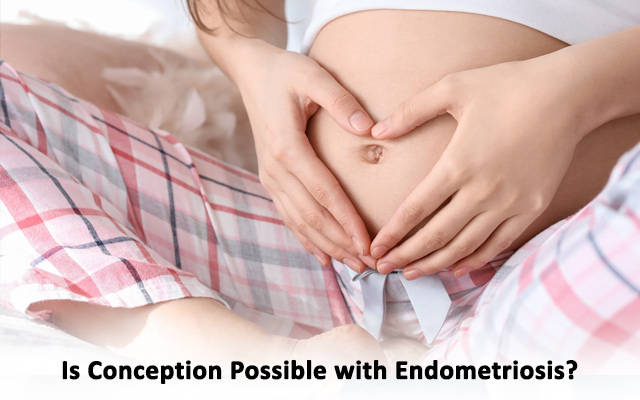Are you suffering from endometriosis? Are you also worried that it might impact your chances of getting pregnant? Don’t worry, because knowing about endometriosis symptoms and consulting with an experienced gynaecologist can help you to manage the condition and also improve your chances of pregnancy. Note that, several women with endometriosis are conceiving naturally or with the help of other procedures such as IVF.
What is Endometriosis?
Endometriosis is a condition where tissue similar to the uterine lining grows outside the uterus. This abnormal growth can cause a range of endometriosis symptoms, including severe pelvic pain, heavy menstrual bleeding, and sometimes infertility. Recognizing these symptoms is essential for understanding their impact on fertility. The misplaced tissue can also affect other organs in the pelvis, causing discomfort and complications beyond just reproductive health.
How Endometriosis Affects Fertility
Endometriosis can affect your ability to conceive in several ways:
1. Scar Tissue and Adhesions
Endometriosis can lead to scar tissue formation and adhesions, which may affect the fallopian tubes, ovaries, or uterus. This can make it harder for the egg and sperm to meet or for a fertilized egg to implant properly.
2. Hormonal Imbalances
Other symptoms of Endometriosis include hormonal balance, affecting your menstrual cycle and ovulation. Irregular ovulation can make it more challenging to conceive. These hormonal fluctuations can also impact the quality of the eggs and the overall reproductive environment.
3. Inflammation
Endometriosis can cause inflammation in your pelvic area, which may impact the function of your reproductive organs and decrease your chances of successful conception. Chronic inflammation may also lead to additional complications, including pain and discomfort that can hinder efforts to conceive. It can make your own immune system to attack the embryo. The uterine lining is also affected which affects implantation.
Understanding Endometriosis Stages
The impact of Endometriosis on fertility can vary based on the endometriosis stages:
- Stage I (Minimal): Few implants and minor scar tissue, which may not significantly affect fertility.
- Stage II (Mild): More implants and some scar tissue which can mildly impact fertility.
- Stage III (Moderate): Larger, deeper implants may be have cysts in the ovaries and more extensive scar tissue which can noticeably affect fertility.
- Stage IV (Severe): Extensive implants, large cysts, and significant scar tissue, which can significantly compromise fertility.
Conclusion
If you are experiencing any of the underlying endometriosis symptoms, you need to understand how much it can affect your fertility. It’s essential to remain hopeful and proactive, as many women with endometriosis successfully achieve pregnancy with the right care and treatment. Stop panicking and seek immediate medical advice from a gynaecological expert in Kolkata to explore suitable treatment options and develop the best strategy for you.


